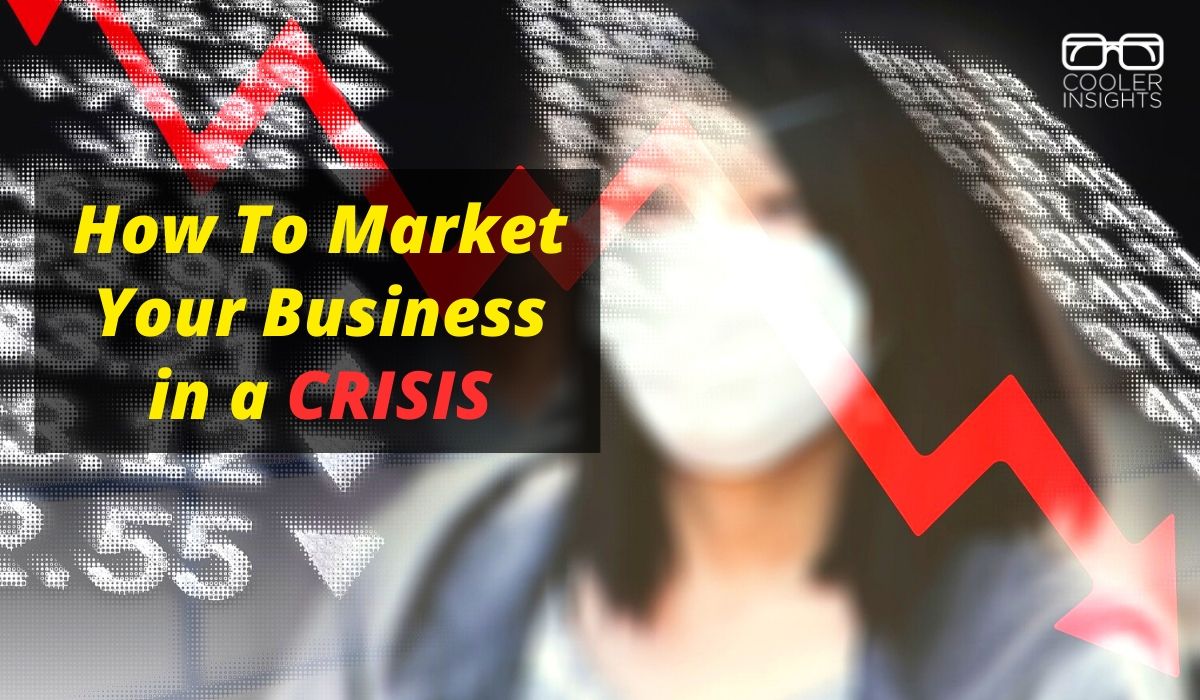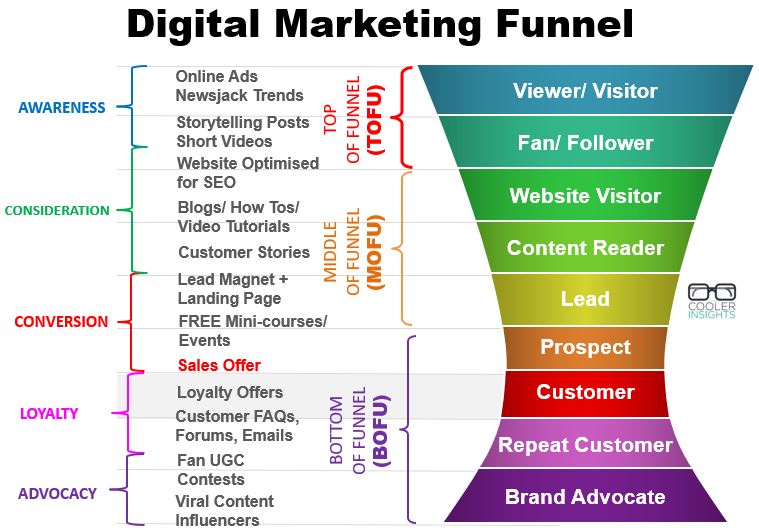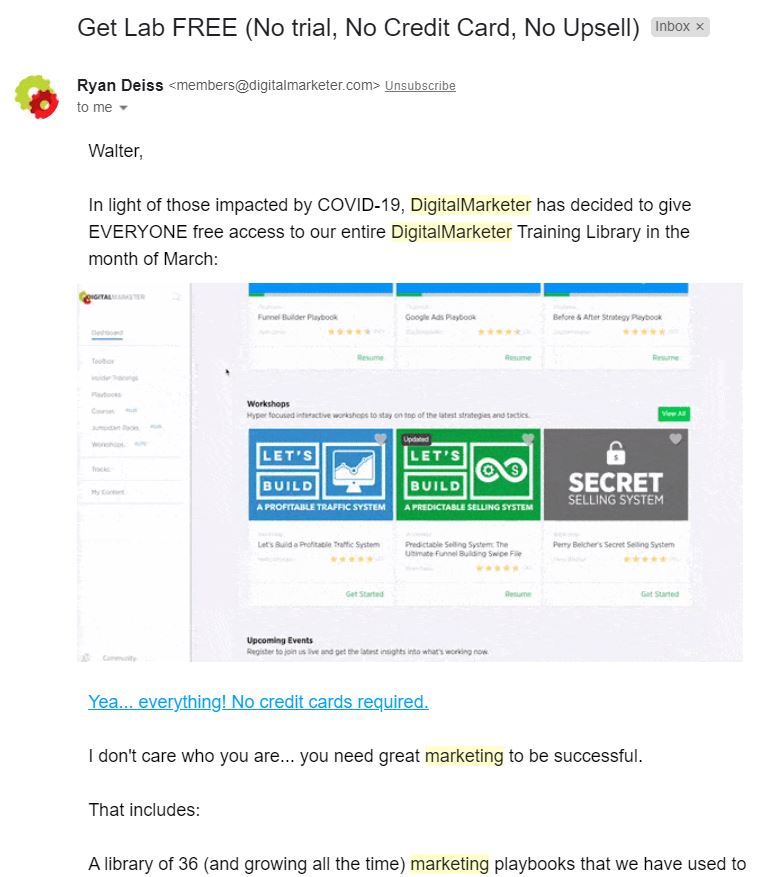
Nobody likes crises. They suck big time—our health, our jobs, our businesses, our finances, and maybe even our very lives are affected.
From global pandemics like COVID-19 (aka the novel Coronavirus), terrorist bombings, environmental disasters, to financial downturns, crises are Black Swan events (ie “unknown unknowns”) that are both unpredictable AND disastrous. Unfortunately, such catastrophic events are likely to be more common in our VUCA (Volatile, Uncertain, Complex, and Ambiguous) world.
When a major health scare like the current COVID-19 incident hits, businesses scramble to cope with the new realities. Operations are reduced, work from home arrangements made, and stringent new measures like social distancing are put in place.
But what if you are a content marketer? Should you simply reduce your content generation activities, downsize your departments, and shutdown your ads? What should a content marketer do when a major crisis disrupts your day-to-day marketing tasks?
In this article, you will learn how to adapt your content marketing strategies to cater to emergencies such as viral pandemics, earthquakes, terrorist attacks, wars, or other major calamities.
Pivot from Non-Essential to Essential
In a crisis situation, your prospects are likely to batten down the hatches and clamp down. They are likely to eschew non-essential expenses on luxury goods like leisure travel, branded fashion apparel, luxury yachts, and exquisite jewelry.
For manufacturers and B2B brands, new product development is likely to slow down too. After all, consumers are in a cocooning mood, and are unlikely to want to splurge during this time.
To circumvent this, consider using your facilities to produce an essential good or service.
- For LVMH, they turned their perfume and cosmetics factories into hand sanitizer production facilities, offering it free of charge to the authorities in France that needed it to counter the coronavirus.
- Elon Musk has proclaimed that his companies SpaceX and Tesla will make ventilators to meet critical shortages in the healthcare system.
- Gaming PC and equipment maker Razer have used their facilities to produce surgical masks to combat COVID-19.
Slow Down on Salesy Content Campaigns
When a crisis hits, people are less likely to respond to sales and promotional messages. This is especially so for discretionary goods and services.
In such a scenario, you should refrain from plugging a hard-selling sales message or promotion in your marketing messages. Even if your prospect has the funds, she is probably not in the right frame of mind to indulge in a luxury cruise, a basketball tournament, or an extravagant massage.
If selling isn’t timely in a crisis, what should you then do?
Focus on Top Of Funnel and Middle Of Funnel Activities
Invest your time, energy and money on creating greater Top Of FUnnel (TOFU) brand awareness as well as Middle Of FUnnel (MOFU) engagement.
This can be visualised with the digital marketing funnel below.

Your goal isn’t so much to close the deal with a sales offer or event, but to provide value to your audiences.
Expand your reach and brand awareness from the top of the funnel, and nurture your audiences for a longer stretch along the middle of the funnel without hastily asking for a purchase decision.
Double Down on Offering Valuable Content
If asking for the sale isn’t kosher, what sort of messages should you send out?
My suggestion is simple: offer even more consistent, valuable and useful content that helps your community to do better.
(Hey, isn’t that what content marketing is all about in the first place? Yep it is!)
Jay Baer has a word for this—Youtility.
In the case of Digital Marketer, they’ve actually offered free access to Digital Marketer Lab during the COVID-19 virus situation. Now how awesome a move is that?

Build Brand Awareness, Trust and Affection
When you generously embrace content marketing and provide useful, practical and actionable tips, techniques (or even products) to your audience during a crisis, several magical things happen:
- Your brand will grow in awareness
- People will be attracted to your brand owing to your generosity in sharing
- You will rise in stature as a leader and authority in your community
- More people will trust and like your brand
Remember the old adage: “A friend in need is a friend indeed?”
The greater the extent of the help you can give in times of crisis, the better your brand’s reputation will be and the more friends your brand will make.
Which brings us to our next related strategy.
Grow Your Brand Communities
Focus on expanding your social networks during a crisis—both online and offline.
To grow your community, consider the following approaches:
- Actively engage with the people following your social media accounts, pages or groups.
- Ask them questions that relate to their current states, offer them helpful advice, and connect them with valuable resources.
- Participate actively in other communities that you’re a member of. Share useful insights and comments. Respond to the posts of others.
- Organise virtual meet-ups using tools like Skype or Zoom, and use them to conduct webinars
- Create and curate valuable content (not just your own, but from other sources too), and share them generously with your communities
Note that giving is an important aspect of building your community.
Refresh Your Online and Offline Platforms
When business is slow, use that lull period to rejuvenate your public-facing content marketing platforms and interfaces.
Begin by doing a comprehensive audit of your online channels and physical locations. Are there any areas that you can improve upon to optimize traffic flow? Can your website, emails and storefronts be better designed to enhance user and customer experience?
Use this opportunity to also improve your brand images. Perhaps you can hire a photographer or videographer to produce newer photos and videos of your business? Or invest in updating your company signages to improve customer navigation at your outlet?
Build Your Content Bank
Last, and certainly not least, you should spend your time crafting more content, and depositing these content pieces into a repository of content—ready to be mobilized for action when the situation has improved.
Now do be mindful of adopting the content marketing best practices that I’ve regularly shared here to ensure that you produce the best quality content for your business. Adopt my step-by-step guide to writing SEO-friendly content, or follow the principles of content marketing strategy espoused by the fabulous Brian Dean in the video below.
Conclusion
Nobody likes to be caught in a crisis. Often, companies shrink back on their content marketing activities while hoping and praying that things will turn.
This is a mistake. When the crisis abates, the marketing departments of these companies are so lean (manpower or budgets) that they are unable to capitalise on it.
You are different. As a smart marketer, you’ll change the contexts of your marketing efforts during crises, and focus on building empathy, brand awareness, trust and likability.
When the situation turns around—as surely it must—you’ll be in an optimum position to grow your business and your brand.
Acknowledgement: This article was inspired by a Facebook video from the amazing Ryan Deiss of Digital Marketer.
